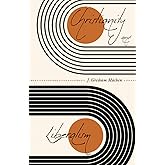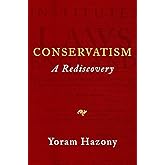
Enjoy fast, free delivery, exclusive deals, and award-winning movies & TV shows with Prime
Try Prime
and start saving today with fast, free delivery
Amazon Prime includes:
Fast, FREE Delivery is available to Prime members. To join, select "Try Amazon Prime and start saving today with Fast, FREE Delivery" below the Add to Cart button.
Amazon Prime members enjoy:- Cardmembers earn 5% Back at Amazon.com with a Prime Credit Card.
- Unlimited Free Two-Day Delivery
- Streaming of thousands of movies and TV shows with limited ads on Prime Video.
- A Kindle book to borrow for free each month - with no due dates
- Listen to over 2 million songs and hundreds of playlists
- Unlimited photo storage with anywhere access
Important: Your credit card will NOT be charged when you start your free trial or if you cancel during the trial period. If you're happy with Amazon Prime, do nothing. At the end of the free trial, your membership will automatically upgrade to a monthly membership.
Buy new:
$17.90$17.90
Ships from: Amazon.com Sold by: Amazon.com
Save with Used - Good
$9.44$9.44
Ships from: Books Today For You Sold by: Books Today For You

Download the free Kindle app and start reading Kindle books instantly on your smartphone, tablet, or computer - no Kindle device required.
Read instantly on your browser with Kindle for Web.
Using your mobile phone camera - scan the code below and download the Kindle app.

Darwinian Conservatism (Societas) Paperback – August 1, 2005
Purchase options and add-ons
- Print length96 pages
- LanguageEnglish
- PublisherImprint Academic (Ips)
- Publication dateAugust 1, 2005
- Dimensions5.36 x 0.39 x 8.1 inches
- ISBN-100907845991
- ISBN-13978-0907845997
There is a newer edition of this item:
Book recommendations, author interviews, editors' picks, and more. Read it now
Frequently purchased items with fast delivery
Editorial Reviews
Review
"A well argued book... Of special interest will be the author's discussion of Darwinism and religion."
-- "Network""Arnhart succeeds in his limited goal of demonstrating that Darwinian theory, properly understood, supports conservative social and political ideas while discrediting leftist utopianism."
--James Seaton "Weekly Standard""Arnhart's book is a sustained and impressive attempt to give a Darwinian underpinning to conservative social thought."
--Paul Crook "Australian Journal of Politics and History""Arnhart's thesis, which he proves abundantly, is that the constraints of our biological nature explode the most persistent delusions of the Left... consequently a Darwinian politics is a largely conservative politics... Arnhart is to be commended for producing an excellent book about conservative thought."
--Antony Flew "Right Now!""Darwinian Conservatism... is a work marked by clarity of purpose, prose, and argument that one rarely finds in academic writing... Arnhart's project to offer a Darwinian account of conservative political philosophy should be taken seriously. Conservative critics of Darwin ignore Arnhart at their own peril."
--Francis Beckwith "The Review of Politics""Morality, aid to others, political freedom and the rest can be perfectly well defended from a Darwinian perspective; Arnhart has done a very good job of doing so."
--Timothy Sandefur "Reports of the National Center of Science Education""The argument is conscientious, documented, and timely. Whether this excellent work will convince many conservatives is a different question."
--John Gross "New Criterion""There is much to be said in defense of both the realist view of the human being and the biological basis of human conduct and society. Arnhart takes up these important issues in a judicious and informed manner, and his delivery is intelligent, careful, and devoid of posturing or special pleading."
--Eugene Heath "The European Legacy""This book should be welcomed by those who are concerned with the social and political ramifications of the theory of evolution."
--Allen Thompson "Philosophical Books""This outstanding Societas essay is strongly recommended."
--David Ashton "Salisbury Review"About the Author
Product details
- Publisher : Imprint Academic (Ips) (August 1, 2005)
- Language : English
- Paperback : 96 pages
- ISBN-10 : 0907845991
- ISBN-13 : 978-0907845997
- Item Weight : 7.2 ounces
- Dimensions : 5.36 x 0.39 x 8.1 inches
- Best Sellers Rank: #4,946,697 in Books (See Top 100 in Books)
- #3,955 in Political Conservatism & Liberalism
- #10,117 in Political Philosophy (Books)
- #11,492 in Evolution (Books)
- Customer Reviews:
About the author

Discover more of the author’s books, see similar authors, read book recommendations and more.
Customer reviews
- 5 star4 star3 star2 star1 star5 star85%0%15%0%0%85%
- 5 star4 star3 star2 star1 star4 star85%0%15%0%0%0%
- 5 star4 star3 star2 star1 star3 star85%0%15%0%0%15%
- 5 star4 star3 star2 star1 star2 star85%0%15%0%0%0%
- 5 star4 star3 star2 star1 star1 star85%0%15%0%0%0%
Customer Reviews, including Product Star Ratings help customers to learn more about the product and decide whether it is the right product for them.
To calculate the overall star rating and percentage breakdown by star, we don’t use a simple average. Instead, our system considers things like how recent a review is and if the reviewer bought the item on Amazon. It also analyzed reviews to verify trustworthiness.
Learn more how customers reviews work on AmazonTop reviews from the United States
There was a problem filtering reviews. Please reload the page.
- Reviewed in the United States on January 6, 2006The one other review here by H. Gintis is nonsense. Arnhart is one of the most thoughtful conservative academic thinkers of our time. To get a peek at him look up the debate he had in First Things with Demski, Johnson et al. a few years ago. It's easy to find with Google.
This is a great little book jam packed with conservative ideas that are found only in dis-jointed form elsewhere. For example, where else have you read or heard discussed Hayek's idea of "spontaneous order?" This was a profound insight by Fredric von Hayek, and virtually unknown to most conservatives who think they know Hayek. At 144 pages you can read this book in an evening, and if you're an open-minded conservative you'll feel great and sleep well.
Those conservatives who have fallen for and swallowed whole the vacuous and silly arguments about "intelligent design" will admittedly have a little harder time with this book. There is no religion bashing. Quite the contrary. But the intelligent design claptrap is simply not accepted as either science or good religion.
If you are a center or center-right thinking person whose mind is open, or if you are a hard right religious conservative but have some room left in your brain for a little cognitive dissonance, this book and it's arguments will expand your horizons. This is a book that will be profitable even to those who ultimately disagree with it. But of course, if you read it you may be persuaded. Buy it!
- Reviewed in the United States on July 1, 2006The attempt to justify conservative politics by appeals to evolutionary theory was tried, and failed, in the 19th C. by none other than Herbert Spencer. Social Darwinism, a more recent variant on a similar theme, had a brief renaissance in the 1970s and 1980s. Fortunately, it has receded into the dustbin of history. Now comes Arnhart in another effort to recreate a conservative paradigm, based on Darwinian science. It too fails miserably.
Fortunately, Arnhart has a fairly decent understanding of evolutionary fact and theory. His effort to "justify" religion on evolutionary grounds, however, is nowhere nearly as successful as Pascal Bouyers' excellent "Religion Explained." His understanding of kin relations accurately reflects the evolutionary insight that "commitments" to kin outweigh commitments to the more amorphous, less connected, society. He is partially right to insist that Intelligent Design be taught in philosophy or religion courses, not science courses; but philosophy will never abide ID anymore than science will. But what do any of these features do to "justify" a conservative political outlook? Nothing!
Philosopher Gilbert Ryle famously coined the phrase "category mistake," an apt phrase to describe this book. Simply, the rejoinder intends to highlight that what's true in one category of thought is not necessarily true when used in another. In context of Arnhart's thesis, science cannot be used to justify politics, anymore than Intelligent Design, a religious theory, can jump categories to explain science. Since Arnhart is aware of the latter "category mistake," why does he try to use the first?
This is not to deny that insights derived from one category are often useful to clarify insights in another. Indeed, sociobiologist E. O. Wilson in his superb "Consilience" advocates doing just that: Using evolutionary fact and theory to understand better all other categories of knowledge, from the social sciences to the humanities. For example, Matt Ridley in his "Origins of Virtue" artfully uses insights from evolutionary theory to clarify certain ethical approaches and their constraints. Arnhart seemed at first to adopt just this strategy, which might have been successful.
Hypothetically, Arnhart could have examined parallels with T. H. Huxley's evolutionary concept of the Struggle to Survive to help elucidate how Adam Smith's Invisible Hand, a conservative nostrum, operates extremely well to allocate limited resources. But he goes too far, by insisting that the competition for limited resources, a biological fact, "justifies" Hayek's spontaneous economy. It does not, indeed it cannot. If it did, feudalism would never have existed, only capitalism. The analysis of comparative practices do not morph into a raison d'etre. Parallels and similarities, yes, justification, no.
Consequently, Arnhart misuses science to do what it cannot do. Science tries to explain (reduce) natural phenomena in its simplest forms with empirical laws that can be verified by repeated experience. Politics and economics, the conservatives' concerns, are social phenomena that cannot be justified by natural theory and facts. It's a category mistake. Arnhart decries constructivism, but then turns around and uses the very thing he decries to construct justifications of conservative social structures using evolutionary theory.
If one understands the futility of Arnhart's project, one can still benefit from his efforts, not to "justify" conservative nostrums, but to explore parallels between evolutionary fact and theory and conservative nostrums. But be aware! Many savy "liberal" writers, such as Robert Wright, better versed than Arnhart in evolutionary knowledge, have argued more successfully for using evolutionary insights as inherited dispositions "to overcome."
Indeed, we can just as easily use evolutionary insights as features "against which" we can work around, using "liberal" nostrums instead of conservative ones. Just because the Struggle to Survive is inherently competitive does not mean we "must be" too. Using evolutionary insights, we can agree to "counter" our competitiive inheritance with deliberate cooperation to improve our chances in the Struggle to Survive. In fact, Elliot and Sobel in their "Unto Others" make this precise claim.
- Reviewed in the United States on October 2, 2013I was initially skeptical about this book, getting it only because it was cited positively in an article in The New Atlantis that dealt with Jonathan Haidt's impressive book on evolutionary psychology ("The Righteous Mind"). But to my pleasant surprise, it provided useful perspectives on a great many issues. Sent a copy to my step son, who is also interested in sorting out moral issues.













